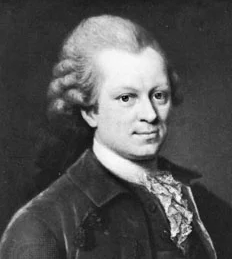A quick introduction to my profession!
by Prairie Keiko Kaya
For dramaturgs, this is our most commonly asked question, and a valid, wonderful query it is! The truth is, there is no one answer!
If you ask Wikipedia, dramaturgy is, “the study of dramatic composition and the representation of the main elements of drama on the stage.“
If you ask me, dramaturgy is the art of asking questions, of supporting a group of artists, and the career path of the eternally curious. Dramaturgs are people who want to explore the thematic and dramatic world, and the dramaturgical tools of research and analysis are their instruments of navigation.

What do dramaturgs do?
Dramaturgs- also referred to as Literary Managers- are brought into a set, production meeting, or planning committee as an objective, knowledgeable eye. We ask questions and condense information, but mostly, we adapt to and deliver whatever our director needs. Thus, we can be researchers, editors, writers, historians, critics, objective eyes, art historians, linguists, amateur astrophysicists, cryptozoologists, comic book enthusiasts, and/or whatever else the production needs.
Whatever the director needs to know, it is our job to know it.
Is dramaturgy a popular area of study?
Technically, if you’ve ever watched a movie, television show, play, or musical- and proceeded to have a deep conversation with your friends about it- you, yourself, have practiced a bit of dramaturgy. Individuals passionate about the analytical sides of art and design have been around since human beings could write and create. Thus, not all who practice dramaturgy utilize the dramaturg title. (For example, many artists who undergo dramaturgical training pursue directing, playwriting, acting, and design for their “official” career paths.)
In addition to being responsible for analyzing and condensing the context, author’s intent, background details, thematic meaning, and overall purpose of a work, dramaturgs are responsible for the parts of a production that deal with equity and proprietorship.
It has become increasingly important for productions to have individuals with dramaturgical training on hand inside the casting room and within the planning process. We are responsible for ensuring fair treatment of the cast and crew and, at times, organizing the archive-and-copywrite elements of pre-production. Dramaturgs make certain that no part of an artistic work is harmful or immoral.
The purpose of art is to push the bounds of human thought and strive for a more equitable planet. Advocacy and social change are thus inherent parts of the dramaturgical life.
Dramaturgy is fascinating! Where can I learn more?
In the United States, there are at least nine undergraduate programs that offer dramaturgical training, including the University of Oklahoma! For Doctoral training in dramaturgy, however, the only existing university in the world with a program at the PhD level is the Yale School of Drama.
Dramaturgy is one of the fasting growing professions within the theatre and entertainment industry. According to the largest association of dramaturgs, the LMDA (Literary Managers and Dramaturgs of the Americas), there are over 500 dramaturgs working in the U.S., Mexico, Canada, and the U.K. Simultaneously, dramaturgy is a somewhat niche and specialized profession. How wonderful it is to be a part of a growing community of scholarly artists!
LMDA: https://lmda.org/
An informative article discussing the work of dramaturgs in contemporary theatre: https://www.backstage.com/magazine/article/dramaturg-help-hindrance-23266/
Information on dramaturgy programs: https://www.theatretrip.com/dramaturgy-programs/#DUSA

